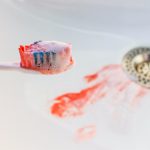Categories for Oral Health
March 5, 2024 8:30 pm
Published by Vero Dental
While going to the dentist when you’re experiencing discomfort or pain is the right thing to do, you could save yourself time, pain, and money with regular, preventive treatments at the dentist’s office. Read our blog post to find out how to save with preventive dentistry.
July 31, 2023 2:37 pm
Published by Vero Dental
In our blog post, we explain whether veneers can protect your smile from the negative effects of teeth grinding and clenching.
May 14, 2022 4:05 am
Published by Vero Dental
In our blog post, we explore the importance of saliva for your oral health. Contact us for additional oral health information!
September 30, 2021 1:24 am
Published by Vero Dental
In our blog post, discover answers to questions that dental hygienists are frequently asked during cleanings.
January 26, 2021 10:30 pm
Published by Vero Dental
Sensitive teeth can be extremely painful! Check out our blog post for tips to reduce teeth sensitivity, and thus improve your quality of life.
November 18, 2020 8:26 pm
Published by Vero Dental
Check out our blog post to learn about periodontal disease. We discuss what causes gum disease and how to prevent it.
May 30, 2020 10:10 pm
Published by Vero Dental
Check out our blog for tips to keep your teeth & gums healthy. If you have a dental emergency or issue, contact our Denver dental office today!






